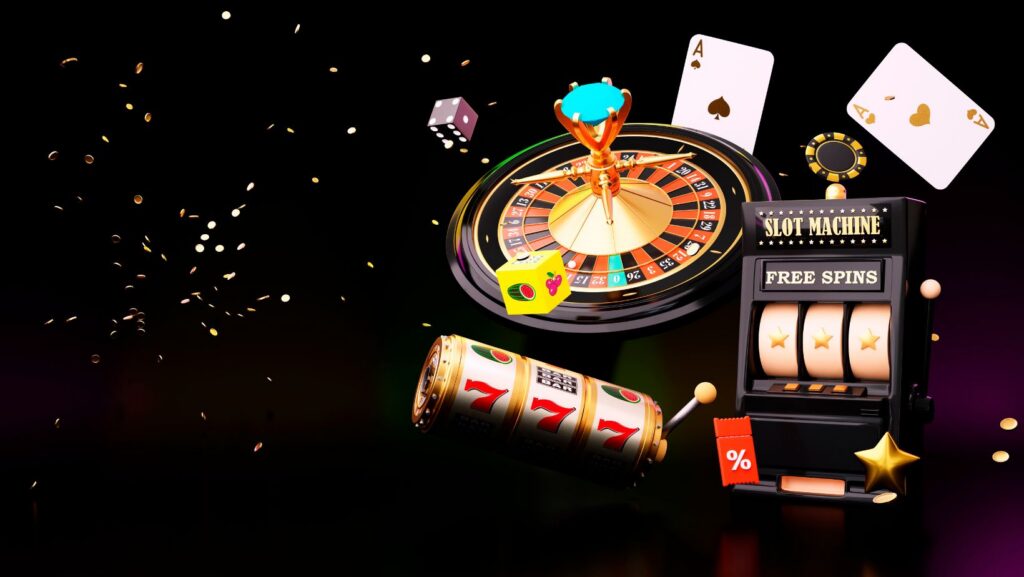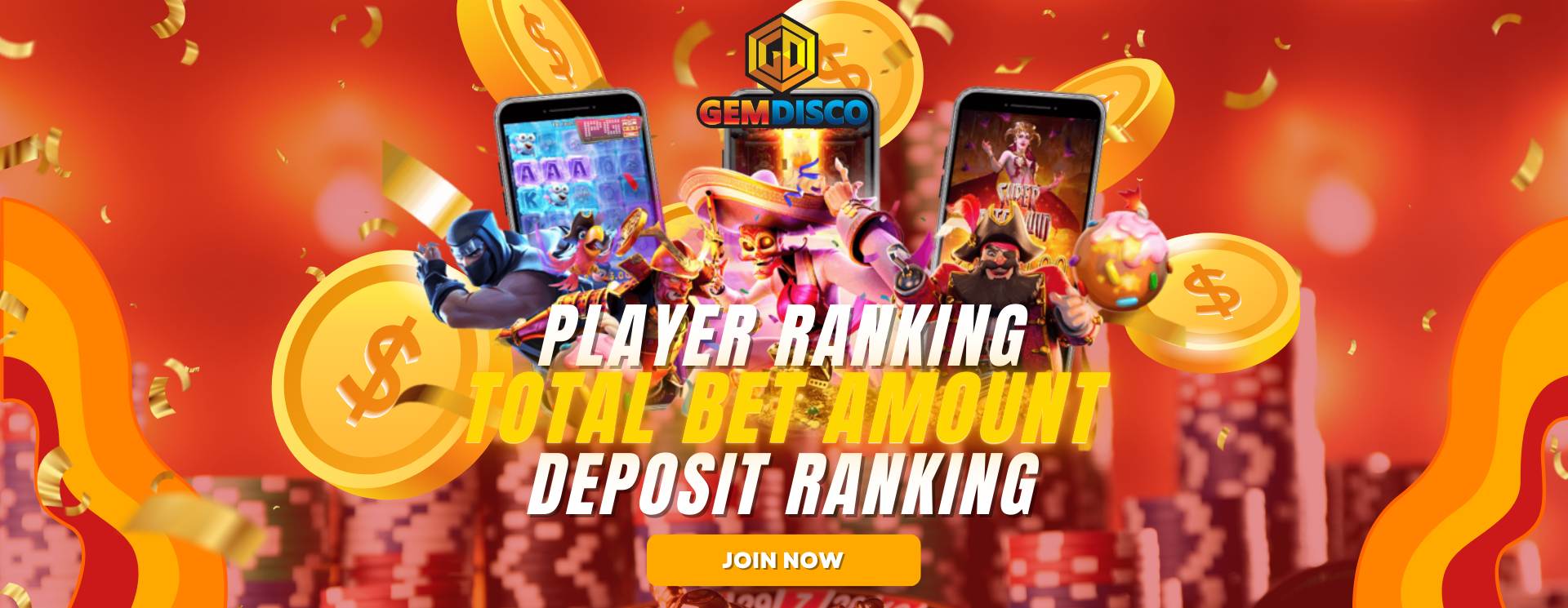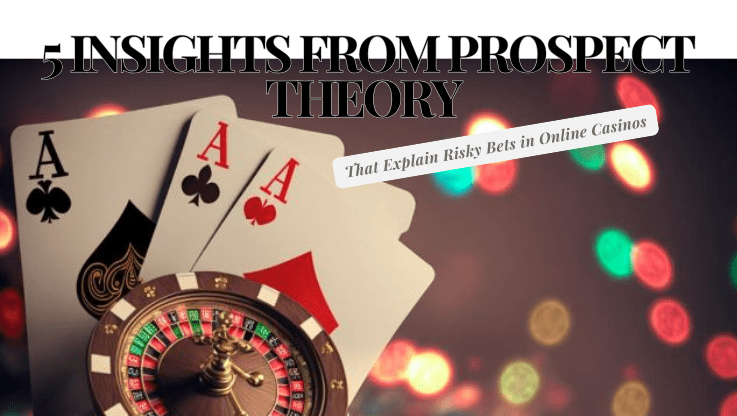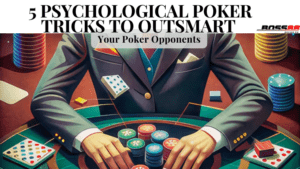When it comes to online casinos, understanding why players make risky bets is key to grasping the psychology behind gambling behavior. Prospect Theory, developed by Daniel Kahneman and Amos Tversky, sheds light on how people perceive gains, losses, and probabilities when making decisions under uncertainty. In the high-stakes world of online gambling, these insights can explain why some players chase jackpots while others avoid risk altogether.

Below, we dive into five powerful insights from Prospect Theory and their application to online casino betting behaviors.
Loss Aversion: Fear of Losing Drives Decisions
One of the core principles of Prospect Theory is loss aversion, which states that people feel the pain of losses more intensely than the pleasure of equivalent gains.
How It Affects Online Casino Bets
- Chasing Losses: Players often double down on bets after a loss, driven by the need to recover and erase the psychological sting of losing.
- Risky Bets: Loss-averse gamblers might take high risks on slot games with massive jackpots, believing the potential win can compensate for prior losses.
Example:
Prospect Theory, A player who loses $100 on blackjack may feel compelled to place a $200 bet, hoping to “break even.” This behavior highlights the emotional weight losses carry over logical decision-making.
Reference Points: Framing Wins and Losses
According to Prospect Theory, people evaluate outcomes relative to a reference point rather than the absolute value of the outcome.
How It Affects Online Casino Bets
- Initial Stake Bias: Players often compare their current balance to their starting deposit, influencing their satisfaction. A $50 win might feel monumental for someone who started with $10 but negligible for someone who deposited $1,000.
- Bonus Perception: Welcome bonuses and free spins create a new reference point, making players feel like they have “extra” money to play with, encouraging riskier bets.
Example:
If a player starts with $50 and wins $200, the satisfaction is immense. However, losing $200 after starting with $500 may feel worse, even if they still have $300 left.
Probability Weighting: Misjudging Odds
Prospect Theory also highlights that people tend to overestimate small probabilities and underestimate large ones.

How It Affects Online Casino Bets
- Jackpot Overvaluation: Players are drawn to slot machines with life-changing jackpots, even if the odds of winning are minuscule.
- Underestimating Risk: Conversely, players may dismiss the likelihood of losing multiple small bets in a row, leading to overconfidence.
Example:
A player betting $5 on a slot game with a 1-in-10 million chance of hitting the jackpot might view it as a “reasonable risk” because of the potential payout, despite the odds being overwhelmingly against them.
Framing Effect: How Context Shapes Choices
Prospect Theory, The framing of information significantly impacts decision-making. In online casinos, the way bets, bonuses, and potential payouts are presented can shape a player’s choices.
How It Affects Online Casino Bets
- Positive Framing: Casinos often emphasize potential winnings rather than losses. For example, promoting a slot with a “chance to win $1 million” is more appealing than one advertising “a 99.9% chance of losing.”
- Bonus Framing: A “100% match bonus up to $200” feels more attractive than stating the risks involved in wagering requirements.
Example:
A player might choose a roulette bet with a “50% chance to double your money” over one described as a “50% chance of losing everything,” even though both represent the same odds.
Diminishing Sensitivity: The Decline of Emotional Impact
Prospect Theory explains that the emotional impact of gains and losses diminishes as their magnitude increases.
How It Affects Online Casino Bets
- Big Wins vs. Small Wins: A player winning $10 and $50 on separate bets may feel more satisfaction than winning $60 all at once.
- Desensitization: High-stakes gamblers may become less sensitive to large losses over time, leading to even riskier behavior.
Example:
A player who initially started betting $5 per spin on a slot game might increase to $50 spins after a series of wins, as the excitement of smaller bets wanes.
Strategies for Responsible Gambling
While Prospect Theory helps us understand why risky bets occur, responsible gambling strategies can mitigate the impact of these psychological biases:

- Set Limits: Establish clear deposit, wager, and time limits to avoid impulsive decisions driven by loss aversion.
- Stay Logical: Remember that the odds in online casinos are always in the house’s favor, regardless of emotional framing or perceived probabilities.
- Avoid Chasing Losses: Recognize that doubling down after a loss often leads to larger losses.
- Take Breaks: Pausing between bets allows for more rational decision-making.
Final Thoughts: Balancing Psychology and Entertainment
Understanding the principles of Prospect Theory reveals the emotional and cognitive biases that drive risky bets in online casinos. While these insights explain player behavior, they also emphasize the importance of responsible gaming practices.
Online casinos are designed to be entertaining, but balancing excitement with thoughtful decision-making ensures a positive experience. By recognizing the psychological triggers of loss aversion, framing, and probability weighting, players can enjoy online gambling as a form of entertainment rather than a financial strategy.
The key takeaway? Stay informed, gamble responsibly, and remember that the thrill of the game lies in the experience, not just the outcome.







































